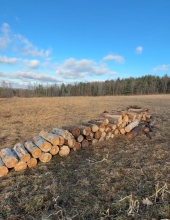
 2
2




When you reach your lowest point, you are open to the greatest change.
-Avatar Aang




James Landreth wrote:
What I would like to do is to come up with a system of raised concrete rainwater tanks that could store water collected off of my buildings.
Does this seem doable? Does anyone have advice or recommendations? I’m hoping to avoid plastic due to leaching and such.




When you reach your lowest point, you are open to the greatest change.
-Avatar Aang
 1
1




John Daley Bendigo, Australia The Enemy of progress is the hope of a perfect plan
Benefits of rainfall collection https://permies.com/t/88043/benefits-rainfall-collection
GOOD DEBT/ BAD DEBT https://permies.com/t/179218/mortgages-good-debt-bad-debt




It's never too late to start! I retired to homestead on the slopes of Mauna Loa, an active volcano. I relate snippets of my endeavor on my blog : www.kaufarmer.blogspot.com




When you reach your lowest point, you are open to the greatest change.
-Avatar Aang
 2
2




Myrth
https://ello.co/myrthcowgirl
 3
3




 1
1




When you reach your lowest point, you are open to the greatest change.
-Avatar Aang
 1
1




 1
1




John Daley Bendigo, Australia The Enemy of progress is the hope of a perfect plan
Benefits of rainfall collection https://permies.com/t/88043/benefits-rainfall-collection
GOOD DEBT/ BAD DEBT https://permies.com/t/179218/mortgages-good-debt-bad-debt
 1
1




 1
1




John Daley Bendigo, Australia The Enemy of progress is the hope of a perfect plan
Benefits of rainfall collection https://permies.com/t/88043/benefits-rainfall-collection
GOOD DEBT/ BAD DEBT https://permies.com/t/179218/mortgages-good-debt-bad-debt
 1
1




When you reach your lowest point, you are open to the greatest change.
-Avatar Aang





| I agree. Here's the link: http://stoves2.com |



